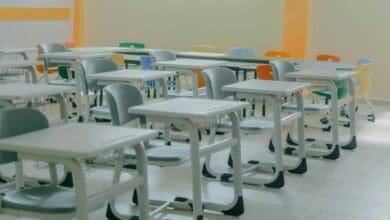Medicine safety education added to school guidance in England
The MHRA worked with the Department for Education (DfE) to embed the content into statutory guidance, alongside a child-friendly reporting guide tested with more than 3,500 children and young people

Register to get 1 free article
Reveal the article below by registering for our email newsletter.
Want unlimited access? View Plans
Already have an account? Sign in
The importance of medicine safety and how to report side effects is now part of the statutory Relationships, Sex and Health Education (RSHE) guidance for schools in England.
The update, announced by the Medicines and Healthcare products Regulatory Agency (MHRA) on World Patient Safety Day, means pupils will be taught how to recognise and report side effects through the Yellow Card scheme. The scheme allows the public to share concerns about medicines and medical devices directly with regulators.
The MHRA worked with the Department for Education (DfE) to embed the content into statutory guidance, alongside a child-friendly reporting guide tested with more than 3,500 children and young people. Lessons will cover what a side effect is, why reporting problems with medicines matters, how to submit a Yellow Card report, and the role of the MHRA in public safety.
Lawrence Tallon, MHRA chief executive, said: “By equipping young people with knowledge about medicine safety, we’re laying the foundations for a lifetime of safer healthcare. The inclusion of information on how to report side effects via the Yellow Card scheme in schools ensures every child knows that their voice matters in making medicines and devices safer for everyone.”
Zubir Ahmed, patient safety minister, added: “By embedding education about the safety of medicines into the school curriculum, we’re giving young people the knowledge and tools they need to protect themselves and their loved ones from preventable harm.”
Stephen Tomlin, of the Royal College of Paediatrics and Child Health and the Neonatal and Paediatric Pharmacy Group Joint Medicines Committee, concluded: “Medicines are the largest therapeutic intervention in the health care setting and children often experience the success and problems with medicines in a different way to adults. This initiative supports children to interact with medicine safety which will not only help improve their care, but also equip them with a lifetime medicine safety skill.”







